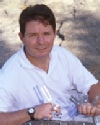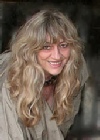










Page 14
Click to access Contemporary Sound Healers Page 3
LEARNING BLOCKS Sound and Vibration l Voice l Chakras l Energy l Singing l Sound Healing Tools l Color l Senses
Music Therapy l Resources l Sound Healing Sessions l Applications
|
|
Stephen Halpern is one of the first to explore music as a tool to effect mood and energy. His sparse reflective keyboard creations launched a whole new genre of music, New Age. Based on his own spiritual and health- |
|
|
John Beaulieu is one of the foremost philosophers and major innovators in the area of sound healing therapies. A world- |
|
|
Wayne Perry is Founder and director of the Sound Therapy Center of Los Angeles, Mr. Perry has been in private practice as a sound therapist and vibrational healer since 1992. One of the first Westerners to master overtone chanting, he teaches workshops worldwide. In 1993 he published the Correlative Healing Chart for Sound Therapy, which is popularly used by healers and sound practitioners worldwide. Visit his website. Listen to samples of his creations |
|
|
Jill Purce pioneered the international sound healing movement through her rediscovery of ancient vocal techniques, the power of group chant, and the spiritual potential of the voice as a magical instrument for healing and meditation. An author, musician and extensive lecturer she is one of the first women to practice overtone chanting. In the last few years she has been invited to work with nuns and monks in a number of enclosed Christian Monastic Communities who sing Gregorian Chant, to teach overtone chanting and other methods to help them find ways to re- |
|
|
Layne Redmond has followed an extremely unusual path specializing in the small hand- |
|
|
Dr Alfred Tomatis formulated the theory that many vocal problems were really hearing problems. His theory that "the voice does not produce what the ear does not hear," is the hallmark of his research and his method. He discovered that the voices of opera singers had damaged their own muscles of the middle ears. With damaged hearing, they were forcing their voices to produce sounds in registers they could no longer hear.In his attempt to retrain his patients, he developed the Electronic Ear, a device which utilizes electronic gating, bone conduction transducers and sound filters to enhance the uppermost missing frequencies. The goal is to tonify the muscles of the middle ear in order to sensitize the listener to the missing frequencies. Visit the website. |











